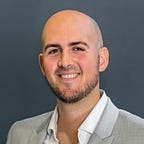Ideas in the Wild: How Dr. Timothy Yen Aims To Help Us Make Better Decisions
We’ve all faced a challenge or decision that felt so overwhelming we had no idea where to start. In times of stress, it’s easy to feel impossibly stuck. Not to mention isolated and alone.
Developed across hundreds of individual case studies and thousands of clinical hours, Dr. Timothy Yen’s new book Choose Better can help us find our best path forward no matter what life throws at us. Dr. Yen provides a systematic approach to solving any problem, no matter how difficult. Readers can learn how to make the right decisions every time — with vision, clarity, and direction — and start claiming their best life. I recently caught up with Dr. Yen to learn what inspired him to write the book and his favorite lesson he shares with readers.
What happened that made you decide to write the book? What was the exact moment you realized these ideas needed to get out there?
The idea came from a meeting I had with an exec who was pretty high up in the tech industry. We were having dinner and I asked the question, “What is the number one skill or topic that would really benefit her workplace?” The answer that she gave me was critical thinking — how to help employees at every level be able to make great decisions despite timelines, stressors, and other pressures that may be going on. That is when I began thinking about writing a book to help people think more critically. Then I took some more time to think about my work as a psychologist and as a healer, and I realized that a lot of challenges people face relate to making good decisions or making better decisions. Many times the clients that I see are in the mess that they made partially because they didn’t make a great choice.
So that got me thinking: how can I take all the things that I’ve learned and create a workflow so that it’s easy for people to organize their thoughts and get all the information that is necessary in order for them to make an optimal decision? I also realized that being a counselor and coach, I can only help people one at a time, and since time is limited, I can only help so many people.
By writing a book and getting these ideas out there, my hope is that it would benefit many more people and have a greater outreach to those who would benefit from these ideas.
What’s the biggest lesson you’ve learned going through the journey you share in the book?
The way that I wrote the book, it’s not so much a cohesive narrative, a story that has a beginning, middle, and end. It is really a collection of experiences that I’ve had personally, as well as experiences that people I’ve had share with me. The biggest lesson I’ve learned is that there is no wasted experience. A lot of ideas that I share in the book are from different seasons of my life, from things that I never thought would be important to mention, to things that are really big pivotal moments in my life. No experience was wasted. So, somehow or another, every experience we have can be utilized to benefit oneself or benefit other people.
How will you apply this lesson in your life moving forward?
In one of my chapters, I talk about rebounding or recovering when you don’t make a great decision. As I shared earlier, there is no wasted experience. You never know what you’ve learned or the experiences that you had, how they will end up shaping you and how they could be a blessing to yourself or other people. In that way, I’ve learned to be more grateful for all the decisions that I’ve made and like rebounding, being able to extrapolate the wisdom, the lessons from different experiences. In a way, that is our ability to redeem our past experiences, use the wisdom that was gleaned, to make a better choice moving forward.
